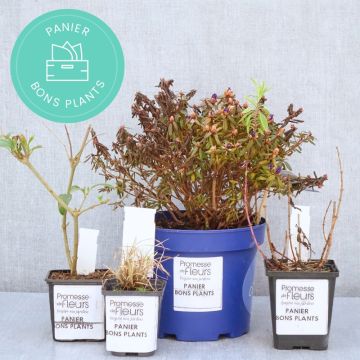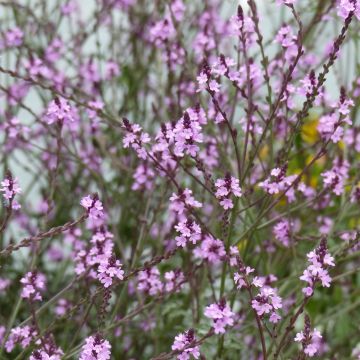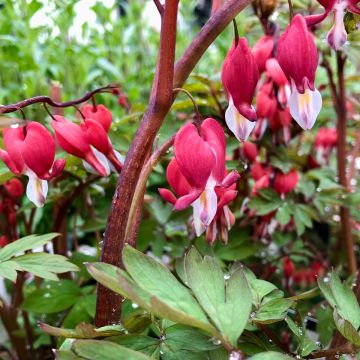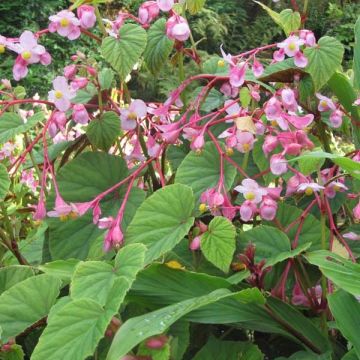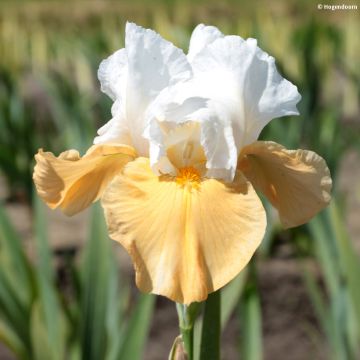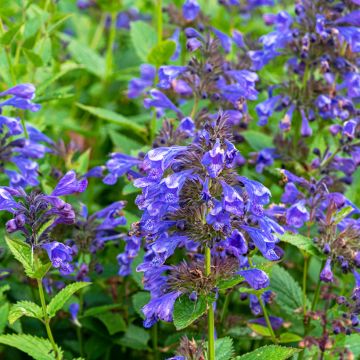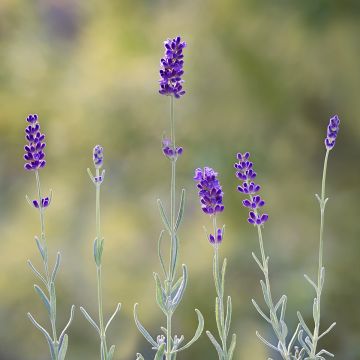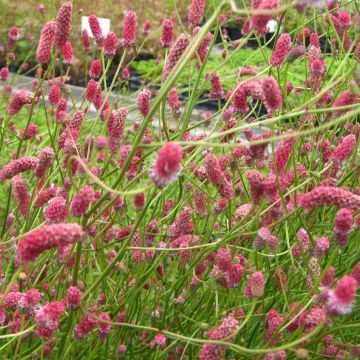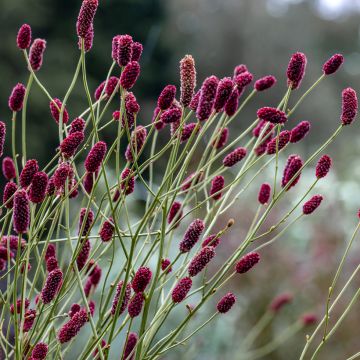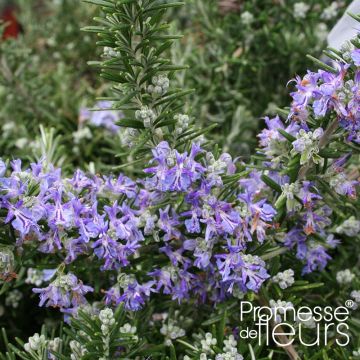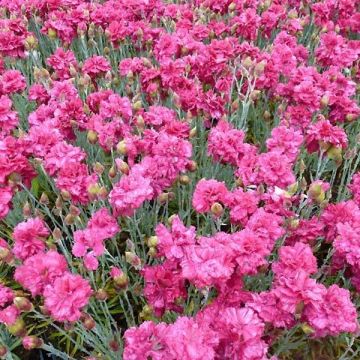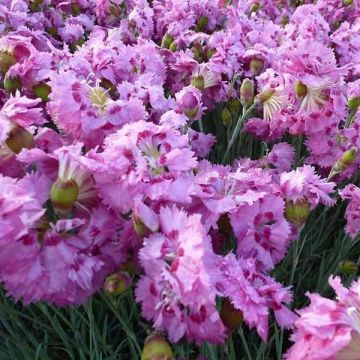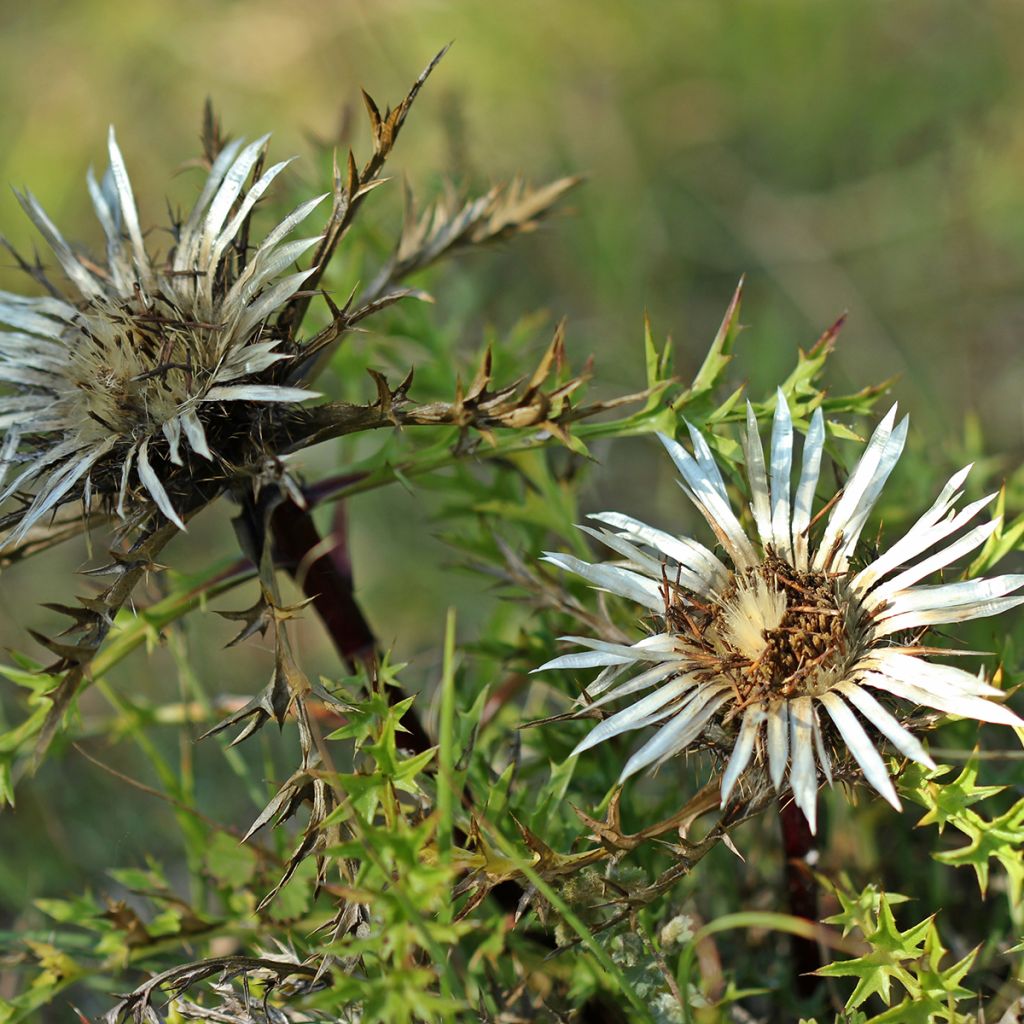

Carlina acaulis subsp. simplex
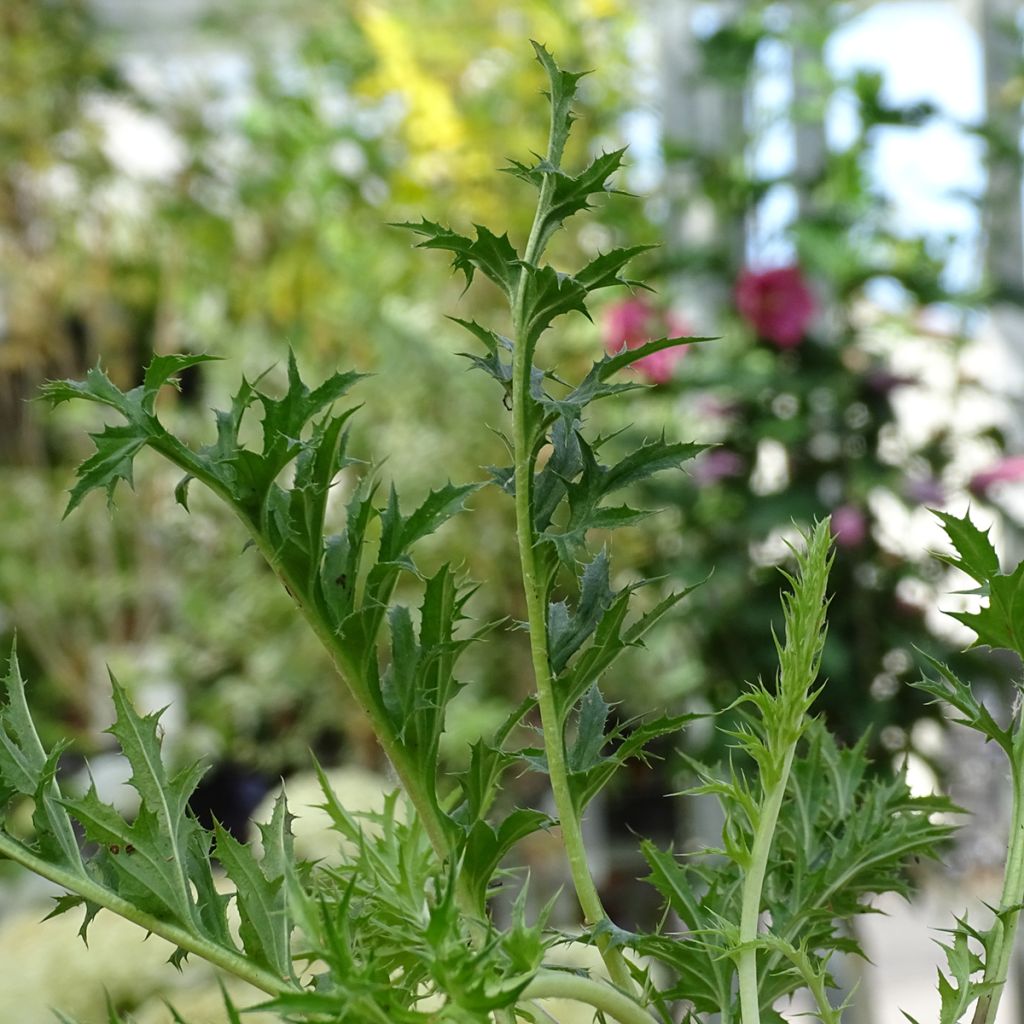

Carlina acaulis subsp. simplex
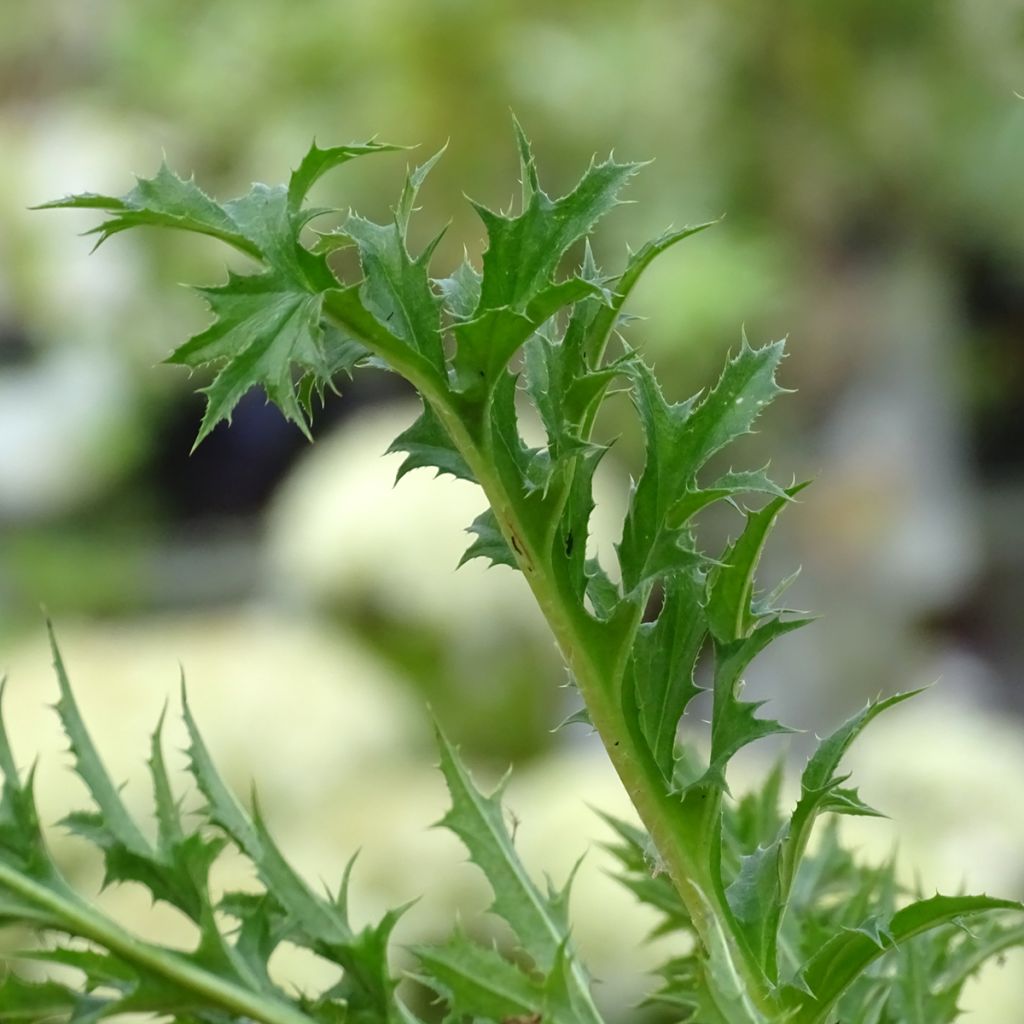

Carlina acaulis subsp. simplex
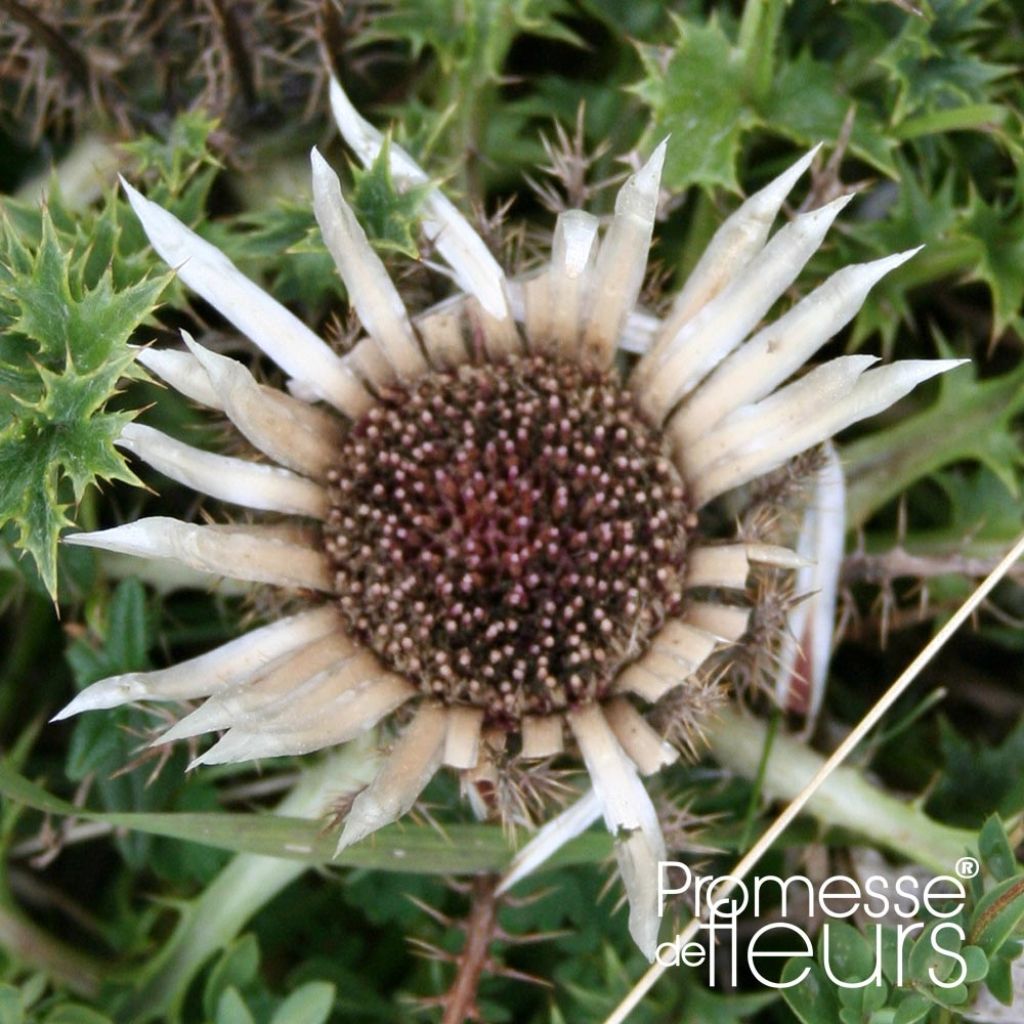

Carlina acaulis subsp. simplex
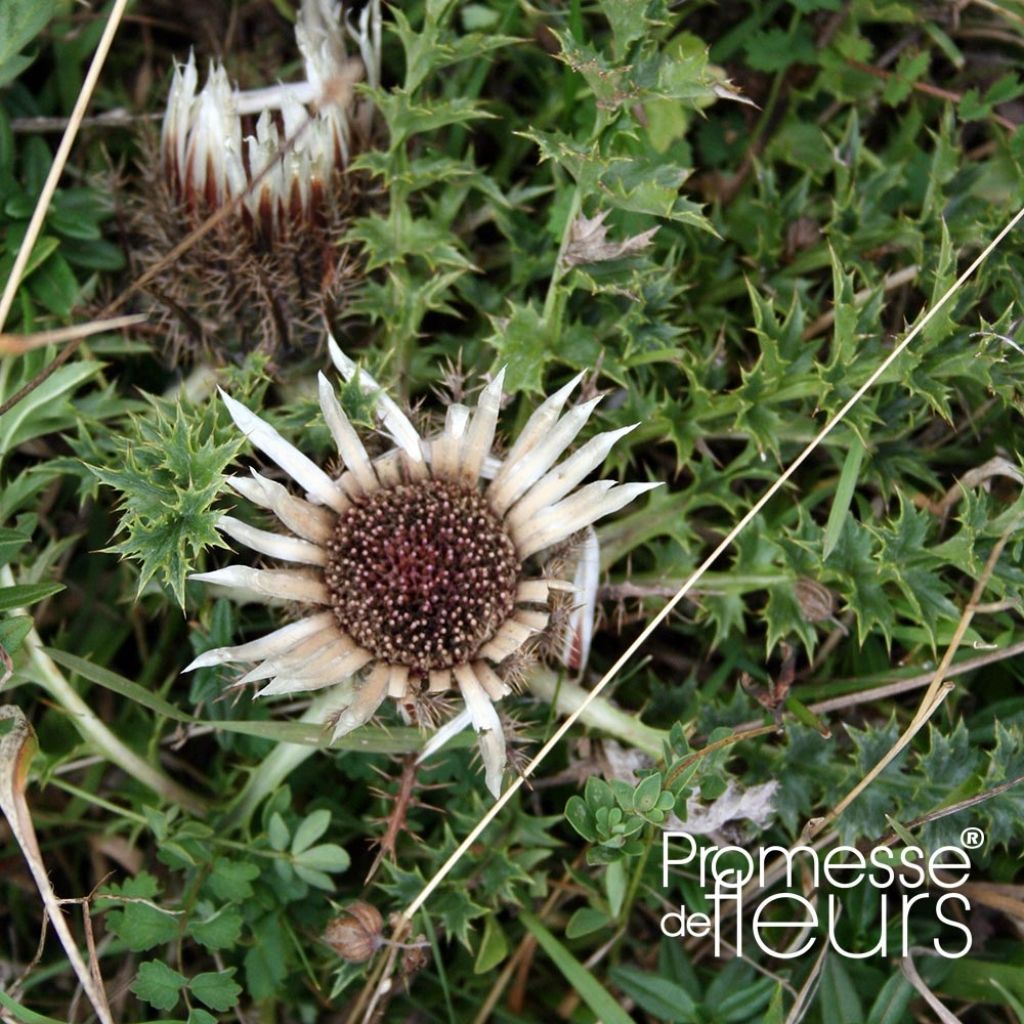

Carlina acaulis subsp. simplex
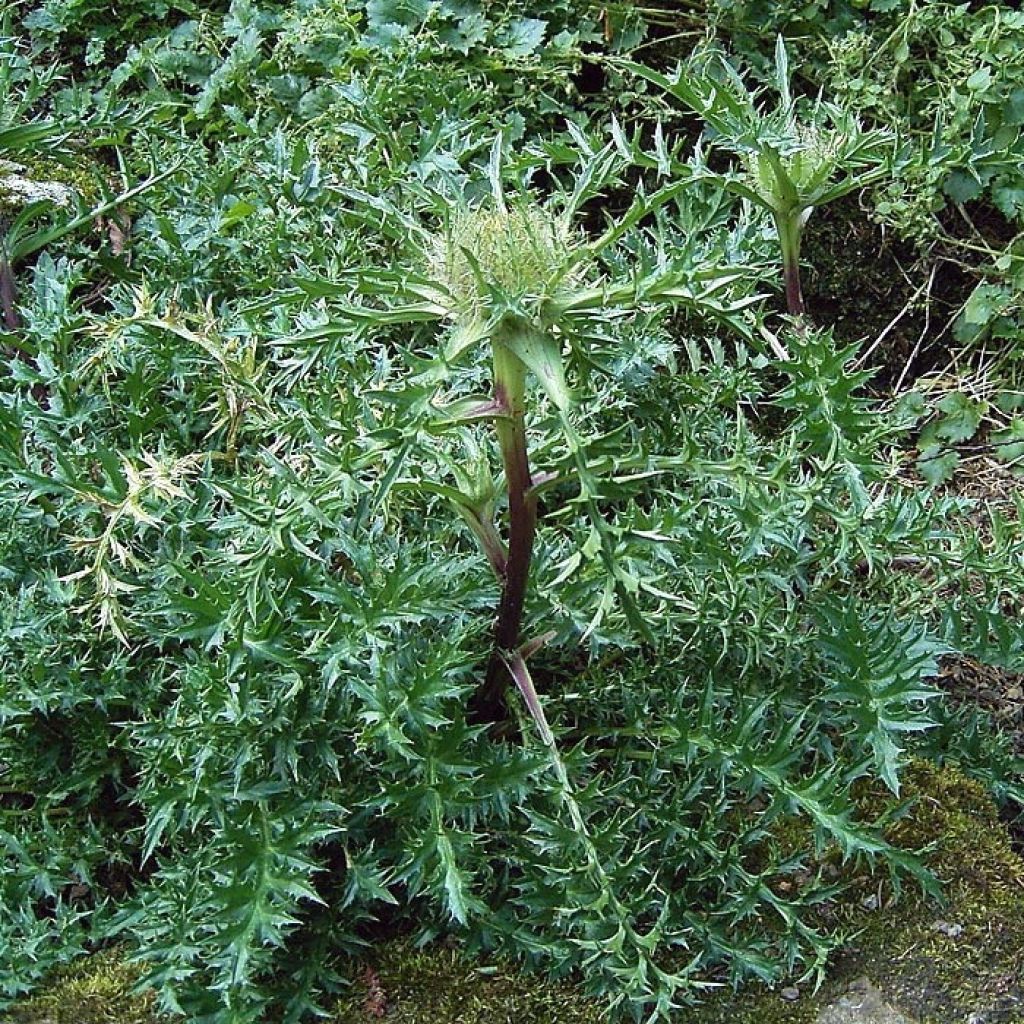

Carlina acaulis subsp. simplex
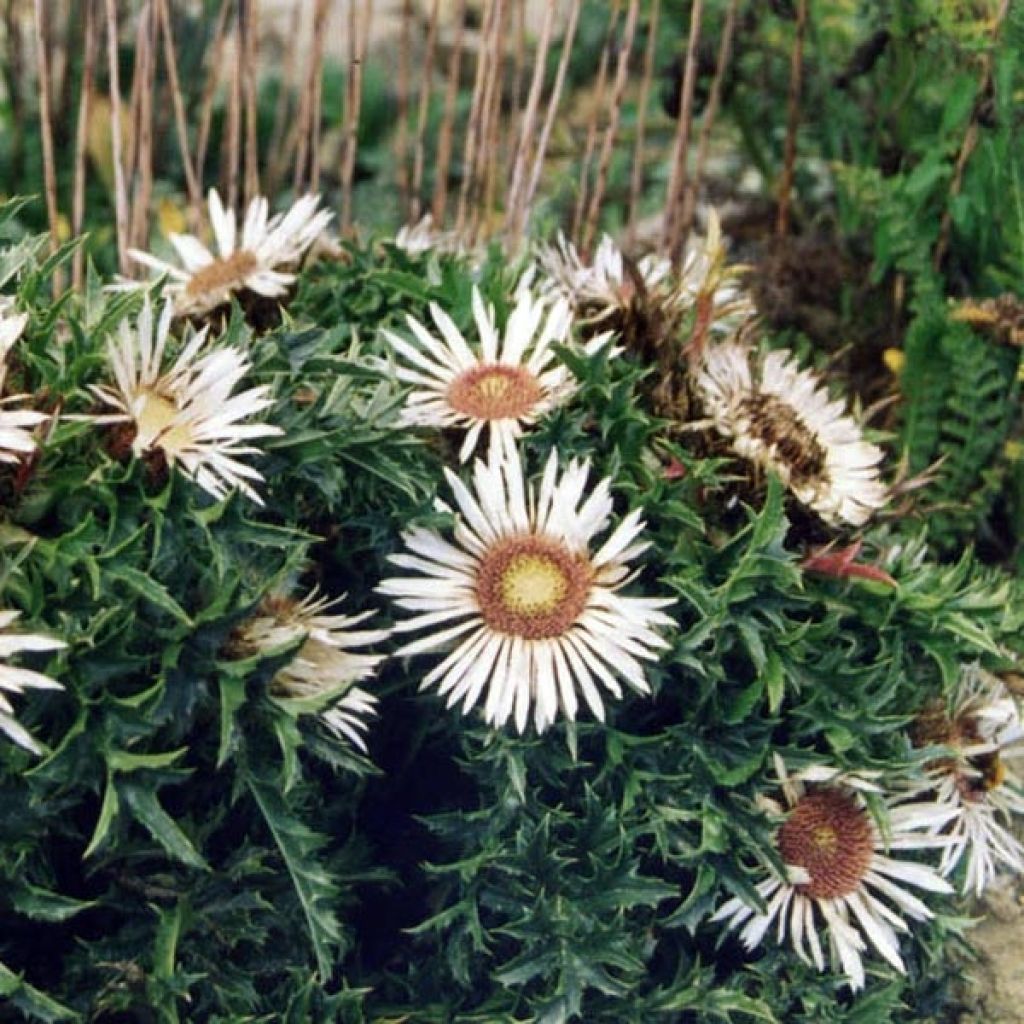

Carlina acaulis subsp. simplex
Carlina acaulis subsp. simplex
Carlina acaulis subsp. simplex
Stemless carline thistle, Dwarf carline thistle
Planted at the beginning of March in the sun, it quickly disappeared. Maybe it didn't like the damp spring.
Marc G, 28/08/2024
Special offer!
Receive a €20 voucher for any order over €90 (excluding delivery costs, credit notes, and plastic-free options)!
1- Add your favorite plants to your cart.
2- Once you have reached €90, confirm your order (you can even choose the delivery date!).
3- As soon as your order is shipped, you will receive an email containing your voucher code, valid for 3 months (90 days).
Your voucher is unique and can only be used once, for any order with a minimum value of €20, excluding delivery costs.
Can be combined with other current offers, non-divisible and non-refundable.
Home or relay delivery (depending on size and destination)
Schedule delivery date,
and select date in basket
This plant carries a 12 months recovery warranty
More information
We guarantee the quality of our plants for a full growing cycle, and will replace at our expense any plant that fails to recover under normal climatic and planting conditions.
Would this plant suit my garden?
Set up your Plantfit profile →
Description
Carlina acaulis subsp. simplex, also known as the Short-stemmed Carline or the Alpine Carline, is a rare and beautiful species of thistle, forming a large rosette of very spiny, dark greenish-grey leaves supported by a very short stem. From late spring to mid-summer, this perennial produces a single head from its centre. This head bears a fluffy cream to beige centre and is adorned with numerous silver-white bracts that reflect light like tiny mirrors. This flower-plant is a treasure for dry, infertile, stony soil. It is ideal for rock gardens. Its flowers are perfect for dried bouquets.
The stemless carline belongs to the Asteraceae family. It is native to southern and eastern Europe, where it grows on arid mountain slopes. This thistle is accustomed to well-drained, sunny, poor, and limestone soils. It is an herbaceous perennial with a limited lifespan, presenting a 50cm (20in) wide rosette habit. Flowering occurs from May-June to August-September. The plant develops a 20 to 40cm (8 to 16in) tall stem in the centre of each rosette, with a collar of leaves at its end, directly supporting a 'flower' of an 8 to 10cm (3 to 4in) diameter head. The fluffy central disk is surrounded by tough, papyraceous bracts of a white-silver colour. This head closes when the weather is humid or rainy. The fruit is a hairy achene topped with feathery bristles. The semi-evergreen foliage is composed of long, spreading, glabrous leaves, slightly villous on the underside, sometimes 30cm (12in) long, with deeply cut edges and sharp spines. This plant has a taproot that firmly anchors it in stony terrain.
This remarkably sculptural plant combines beautifully with other rock garden perennials such as blue fescue, creeping sedums, dwarf wormwoods, or small lavenders. The stemless Carlina Simplex creates a unique effect in alpine troughs and other containers. One can take inspiration from nature by placing it along paths, at the edge of groves, in light deciduous, coniferous, or mixed woodlands, in dry meadows, or on rocky slopes. It can be included in dried bouquets. In the past, dried flowers were used as barometers.
Report an error about the product description
Carlina acaulis subsp. simplex in pictures
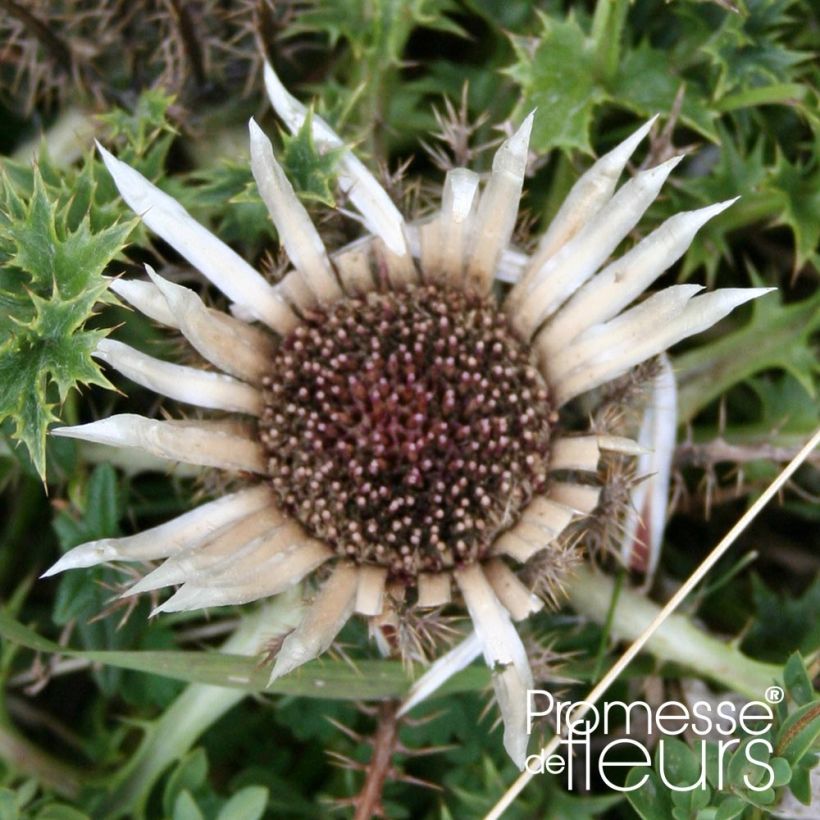

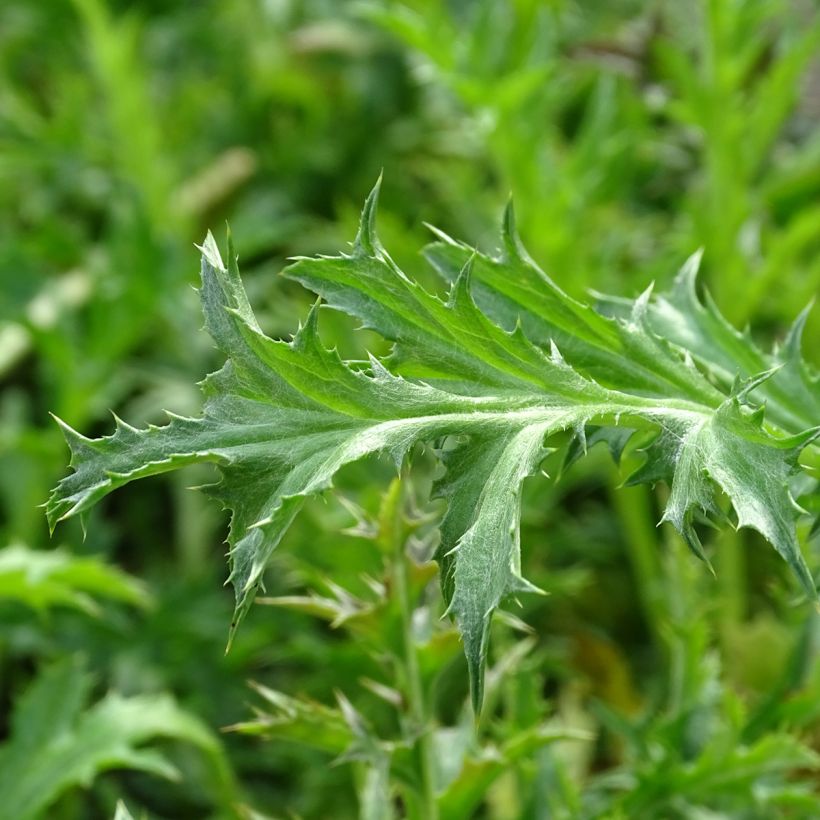

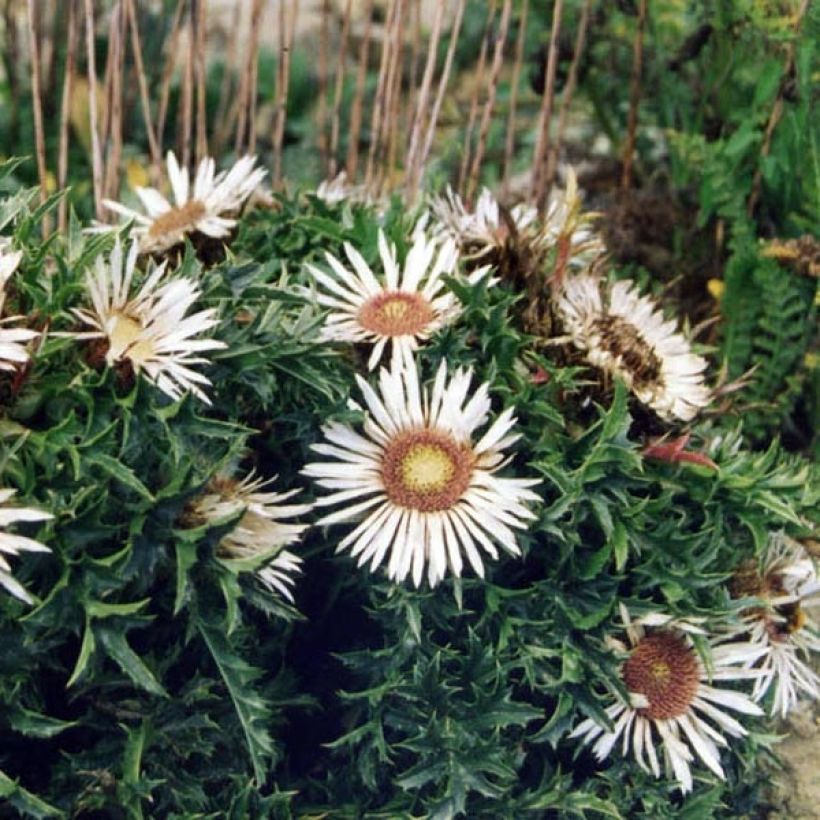

Flowering
Foliage
Plant habit
Botanical data
Carlina
acaulis subsp. simplex
Asteraceae
Stemless carline thistle, Dwarf carline thistle
Alps
Other Perennials A to Z
View all →Planting and care
Plant it in a dry, warm and sunny location. It requires perfectly drained, rocky, poor soil. Its root can rot in wet soil during winter. It prefers limestone soils and loses its compact habit in fertile soils. Remove faded flowers to prevent the plant from premature death. If the flowers are not cut, the young plant can self-seed in light soils.
Planting period
Intended location
Care
-
, onOrder confirmed
Reply from on Promesse de fleurs
Similar products
Haven't found what you were looking for?
Hardiness is the lowest winter temperature a plant can endure without suffering serious damage or even dying. However, hardiness is affected by location (a sheltered area, such as a patio), protection (winter cover) and soil type (hardiness is improved by well-drained soil).

Photo Sharing Terms & Conditions
In order to encourage gardeners to interact and share their experiences, Promesse de fleurs offers various media enabling content to be uploaded onto its Site - in particular via the ‘Photo sharing’ module.
The User agrees to refrain from:
- Posting any content that is illegal, prejudicial, insulting, racist, inciteful to hatred, revisionist, contrary to public decency, that infringes on privacy or on the privacy rights of third parties, in particular the publicity rights of persons and goods, intellectual property rights, or the right to privacy.
- Submitting content on behalf of a third party;
- Impersonate the identity of a third party and/or publish any personal information about a third party;
In general, the User undertakes to refrain from any unethical behaviour.
All Content (in particular text, comments, files, images, photos, videos, creative works, etc.), which may be subject to property or intellectual property rights, image or other private rights, shall remain the property of the User, subject to the limited rights granted by the terms of the licence granted by Promesse de fleurs as stated below. Users are at liberty to publish or not to publish such Content on the Site, notably via the ‘Photo Sharing’ facility, and accept that this Content shall be made public and freely accessible, notably on the Internet.
Users further acknowledge, undertake to have ,and guarantee that they hold all necessary rights and permissions to publish such material on the Site, in particular with regard to the legislation in force pertaining to any privacy, property, intellectual property, image, or contractual rights, or rights of any other nature. By publishing such Content on the Site, Users acknowledge accepting full liability as publishers of the Content within the meaning of the law, and grant Promesse de fleurs, free of charge, an inclusive, worldwide licence for the said Content for the entire duration of its publication, including all reproduction, representation, up/downloading, displaying, performing, transmission, and storage rights.
Users also grant permission for their name to be linked to the Content and accept that this link may not always be made available.
By engaging in posting material, Users consent to their Content becoming automatically accessible on the Internet, in particular on other sites and/or blogs and/or web pages of the Promesse de fleurs site, including in particular social pages and the Promesse de fleurs catalogue.
Users may secure the removal of entrusted content free of charge by issuing a simple request via our contact form.
The flowering period indicated on our website applies to countries and regions located in USDA zone 8 (France, the United Kingdom, Ireland, the Netherlands, etc.)
It will vary according to where you live:
- In zones 9 to 10 (Italy, Spain, Greece, etc.), flowering will occur about 2 to 4 weeks earlier.
- In zones 6 to 7 (Germany, Poland, Slovenia, and lower mountainous regions), flowering will be delayed by 2 to 3 weeks.
- In zone 5 (Central Europe, Scandinavia), blooming will be delayed by 3 to 5 weeks.
In temperate climates, pruning of spring-flowering shrubs (forsythia, spireas, etc.) should be done just after flowering.
Pruning of summer-flowering shrubs (Indian Lilac, Perovskia, etc.) can be done in winter or spring.
In cold regions as well as with frost-sensitive plants, avoid pruning too early when severe frosts may still occur.
The planting period indicated on our website applies to countries and regions located in USDA zone 8 (France, United Kingdom, Ireland, Netherlands).
It will vary according to where you live:
- In Mediterranean zones (Marseille, Madrid, Milan, etc.), autumn and winter are the best planting periods.
- In continental zones (Strasbourg, Munich, Vienna, etc.), delay planting by 2 to 3 weeks in spring and bring it forward by 2 to 4 weeks in autumn.
- In mountainous regions (the Alps, Pyrenees, Carpathians, etc.), it is best to plant in late spring (May-June) or late summer (August-September).
The harvesting period indicated on our website applies to countries and regions in USDA zone 8 (France, England, Ireland, the Netherlands).
In colder areas (Scandinavia, Poland, Austria...) fruit and vegetable harvests are likely to be delayed by 3-4 weeks.
In warmer areas (Italy, Spain, Greece, etc.), harvesting will probably take place earlier, depending on weather conditions.
The sowing periods indicated on our website apply to countries and regions within USDA Zone 8 (France, UK, Ireland, Netherlands).
In colder areas (Scandinavia, Poland, Austria...), delay any outdoor sowing by 3-4 weeks, or sow under glass.
In warmer climes (Italy, Spain, Greece, etc.), bring outdoor sowing forward by a few weeks.






























